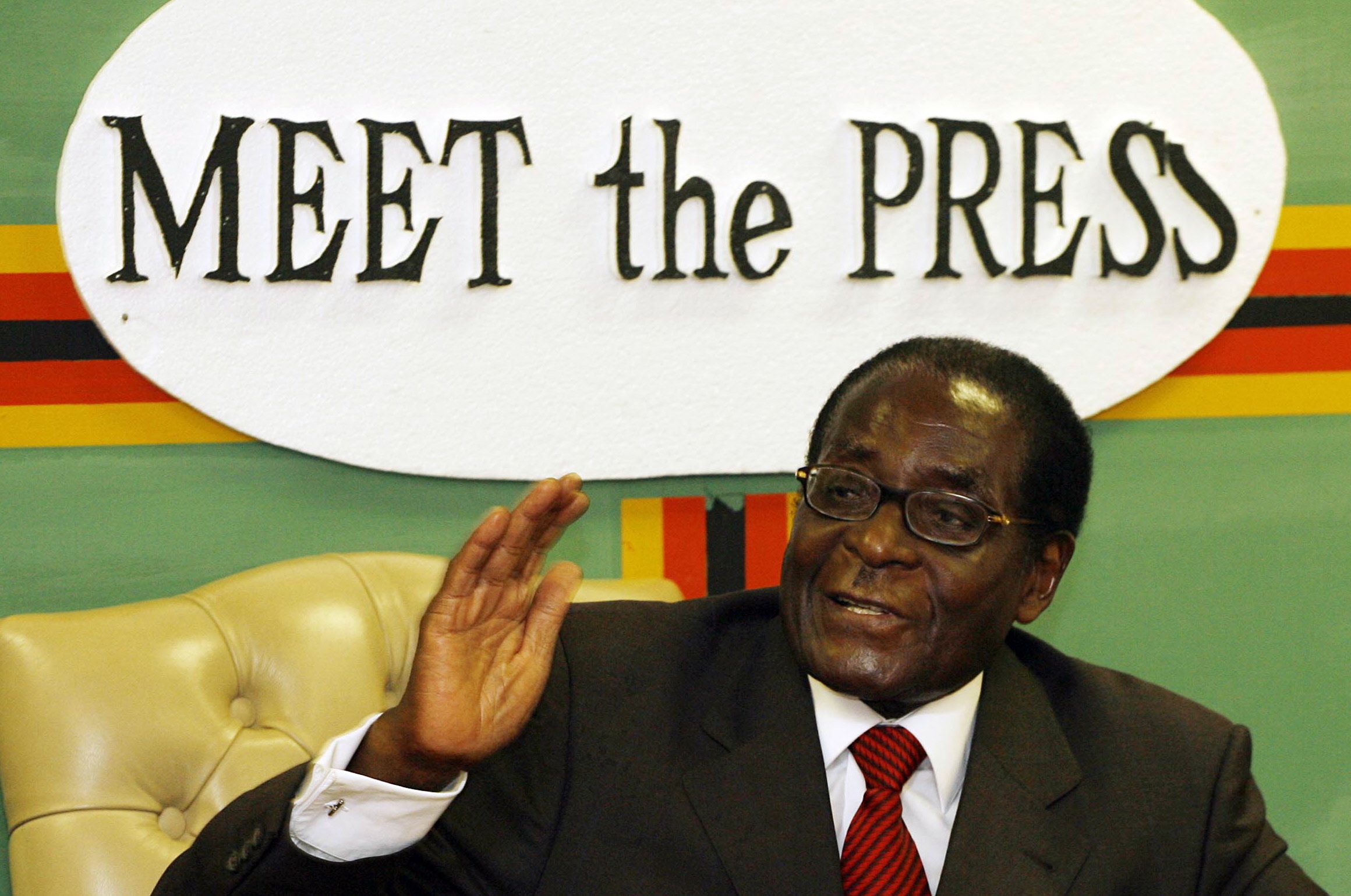
Reactions to the U.K.'s surprise decision to vote to leave the European Union were not limited to the continent.
Across Africa, politicians, bloggers and public figures all speculated on what a Brexit might mean for Africa's relationship with the U.K. and the EU.
Here, Newsweek rounds up some of the most pertinent—and most puzzling—reactions to the U.K.'s seismic decision.
Which African leaders should follow Cameron's example?
In the wake of the Leave vote, British Prime Minister David Cameron—who campaigned for Remain—announced that he would step down by October in order for "fresh leadership" to oversee the U.K.'s exit from the EU.
Following Cameron's decision, social media lit up with contributors in different African countries suggesting that their heads of state should take a leaf out of the British prime minister's book. Journalist Nqaba Matshazi pointed to Zimbabwean President Robert Mugabe, in power since the southern African country obtained independence in 1980.
John Major, Tony Blair, Gordon Brown, David Cameron. One man still standing pic.twitter.com/D9ozwb0F7n
— Nqaba Matshazi (@nqabamatshazi) June 24, 2016
The comparison drew the ire of Zimbabwean higher education minister Jonathan Moyo.
This tendency to draw comparisons between #Zimbabwe & any & every development elsewhere has become childish & silly! https://t.co/z8XxNDYPJl
— Prof Jonathan Moyo (@ProfJNMoyo) June 24, 2016
South African President Jacob Zuma—who found out Friday that he could face corruption charges dating back to a 1999 arms deal after a failed appeal—was also a target for critics, as was Somali President Hassan Sheikh Mohamud.
Cameron: Mr Zuma, I have resigned after the #EURef. Are you not going to resign after #SpyTapes ruling?
— Siphile Hlwatika (@SiphileHlwatika) June 24, 2016
Zuma: Ngeke pic.twitter.com/jQuUKgkgFU
#DavidCameron messed up and owned it by resigning. HSM messed up multiple times but expects a reward with term extension! #Somalia #Africa
— Fatuma (@Fatumaabdulahi) June 24, 2016
Can English clubs still play in Europe?
Following the Brexit vote, a media advisor to Nigerian President Muhammadu Buhari appeared to confuse his European supranational organizations, conflating the EU with UEFA, the European football authority. Bashir Ahmad wondered whether Premier League clubs would still participate in the Champions League.
After the #Brexit result, what would be the fate of British clubs in the #UCL. Please don't mind me, I didn't read much on the issue.
— Bashir Ahmad (@BashirAhmaad) June 24, 2016
Several Nigerians responded with varying degrees of sarcasm:
While the Uk will leave the Economic union called the EU, it is still a European country sir... https://t.co/mWmgfDiq0L
— Amir Ado (@Amir_Ado) June 24, 2016
UCL football remains for British clubs. Only issue is work permit for non-British young players. https://t.co/jOWQfnc53O
— Osayi George (@ossylishuz) June 24, 2016
Mixed fortunes for African currencies
The news of Brexit sent a shock through South Africa's economy, with the Johannesburg Stock Exchange dropping by 4 percent on opening. The South African rand also dropped by more than 7 percent after the Brexit vote was confirmed, though it has since recouped some of those losses. The country's finance minister Pravin Gordhan has sought to reassure the country, saying that South Africa's trade links with the U.K. and the EU are "fairly strong" and "based on solid agreements," and that any necessary changes would be negotiated over the coming two years.
Meanwhile, ex-Swedish Prime Minister Carl Bildt noted that the Zimbabwean dollar is climbing in value. Zimbabwe's dollar was officially discontinued in 2009 following a period of huge hyperinflation, during which the price of a loaf of bread rose to 10 million Zimbabwean dollars.
I see that even the Zimbabwe currency is now gaining ground against the UK pound.
— Carl Bildt (@carlbildt) June 24, 2016
Uncommon Knowledge
Newsweek is committed to challenging conventional wisdom and finding connections in the search for common ground.
Newsweek is committed to challenging conventional wisdom and finding connections in the search for common ground.
About the writer
Conor is a staff writer for Newsweek covering Africa, with a focus on Nigeria, security and conflict.
To read how Newsweek uses AI as a newsroom tool, Click here.








